
I’m Indigenous. I’ve been turned down for a promotion twice. The review process is the same for everyone here. So I guess this can’t be discrimination.
The law in BC says that it’s wrong if someone treats you badly or unfairly because of certain protected parts of your identity. This is called discrimination. Learn what your human rights and options are if you experience discrimination.
Content warning
This page describes experiences of discrimination. It may bring up difficult or unpleasant memories, feelings, or thoughts. Indigenous Peoples in BC who need emotional support can contact the 24-Hour KUU-US Crisis Line at 1-800-588-8717.
What you should know
“I am not your stereotype. I am a valued member of my First Nation. I live in community with others. I am a woman, healer and caregiver. I am a mother and lifegiver. I am an Elder, a teacher and Knowledge Keeper. I am whole and complex and every part of me has the right to be free from discrimination.”
– Claire, Nlaka'pamux Nation

Under BC human rights law, your Indigenous identity is protected from discrimination. It's wrong for someone to treat you badly or unfairly because you are First Nation, Métis, or Inuit. More than that, it’s illegal. This applies whether you live in an urban, rural, or remote community.
There are other parts of your identity protected from discrimination:
your race and ancestry, colour, and place of origin
your sex, sexual orientation, and gender identity or expression
your age
any physical or mental disability
your marital status
your family status, such as if you have kids
Resources made for Indigenous Peoples in BC
The BC Human Rights Clinic has some easy-to-understand resources for Indigenous Peoples in BC. They can help you understand what discrimination might look like and how to get help.
Indigenous mother wins human rights claim
“The three of us [Indigenous women] all in a row… it felt pretty powerful.”
Deborah Campbell is an Indigenous mother. She was out walking her dogs when she witnessed police stop and arrest her son. She stayed to make sure he was safe. The arresting officers refused to answer her questions and dragged her away roughly.
Deborah brought a human rights claim. She gave her oath on an eagle feather. Her lawyers were two other Indigenous women. Deborah won her case. The tribunal found that the officers discriminated against her. Her Indigenous identity was a factor in their negative treatment toward her. The officers failed to take into account her unique circumstance as an Indigenous mother.
The tribunal noted Deborah had no reason to trust the colonial legal system. But the tribunal process was the only one she could use to access justice.

The main way you can hold others directly accountable is by making a complaint to a human rights tribunal. A tribunal is like a court but less formal. Its members hear and decide human rights complaints. There are several members of the BC Human Rights Tribunal who are Indigenous.
By filing a complaint, you can make a difference — for yourself and for others. There are different remedies that the tribunal can order. The tribunal can order someone to give you money. In the example above, the Vancouver Police Board had to give Deborah $20,000 for injury to her dignity, feelings, and self-respect.
If the discrimination is part of a pattern or practice, the tribunal can order the organization to take action or make changes. In Deborah’s case, the Vancouver Police Board was ordered to provide training to officers to ensure that police interaction with Indigenous Peoples occurs without discrimination.
Human rights law can’t fix every injustice. (For that, we need deeper change.) But you have the right to file a complaint and hold others accountable.
Successful outcomes for Indigenous Peoples
Indigenous Peoples have brought complaints to the BC Human Rights Tribunal and won. You can watch some examples in this video.
Laws about discrimination are made by different levels of government. Depending on what happened to you, BC or federal laws may apply. This determines who is able to deal with your complaint. Getting this right early on will get you the help you need as soon as possible.
If BC law applies, you deal with the BC Human Rights Tribunal. BC human rights law protects you at work, in housing and in accessing a service. Housing includes renting from a landlord or buying a home. A service can be public, like a school or hospital. Or it can be a service offered by a private business like a store or restaurant.
There are some situations where federal human rights law will apply instead. These include dealings with your bank, your phone company, or (if you’re First Nation) your First Nation government. These types of complaints should go to the Canadian Human Rights Commission.
Here’s some guidance on who you can make a complaint to in any given situation.
Get help figuring out what laws apply to you
Doing this early on can save you a lot of time and energy. It’s not always easy to figure out whether BC or federal law will apply. The BC Human Rights Clinic can help — for free.
“I’ve been smudging in my apartment to keep me grounded. My landlord said I was stinking up the place. I told him what I was doing and why. He said “The other tenants follow the rules. Absolutely no exceptions!” He threatened to kick me out. I wasn’t sure there was much I could do. But the rules have a negative impact on me because of my Indigenous identity.”
– F.A., Sooke, BC

Here are some more things to know about discrimination:
Discrimination occurs when someone is treated badly or unfairly because of a protected part of their identity. For example, if an employer fires you after learning you’re pregnant, that’s discrimination.
Discrimination can be less direct. Rules or practices often apply to everyone. But some rules can have a discriminatory effect on some people. That can make those rules discriminatory.
Discrimination doesn’t need to be intentional. The law says it’s the impact the treatment has on someone that’s important.
You can bring a human rights complaint based on multiple grounds. Often, people experience discrimination based on more than one part of their identity. These multiple layers of experience combine to produce a unique and increased experience of discrimination.
People often think of racism and discrimination as intentional acts by individuals. But the systems you live and work for can disadvantage you, too. This is called systemic discrimination.
What does systemic discrimination look like?
The rules, practices, and patterns of behaviour in many systems work to disadvantage Indigenous Peoples in BC.
Here are some examples:
At work. A Métis woman is singled out as a target for constant microaggressions and sexism. Her manager calls her a “troublemaker” when she calls out these harmful work practices. She’s told it’ll be a “red flag” on her record if she files a complaint.
In accessing health care. A dentist performs unnecessary work on an Inuit patient. She is overheard saying, “We make it a rule to give them more preventative interventions. They need more help taking care of themselves.”
In education. A school district has buses that take First Nation students living on reserve to school. These buses don’t take students to the French immersion or other choice schools. Other students in the school district are bused to these schools.
What you can do about it
You can bring a complaint about systemic racism to the BC Human Rights Tribunal. You won’t be required to prove the effects of colonialism and historical trauma on Indigenous Peoples. In a hearing with an Indigenous complainant, the tribunal must take these events into account.
Systemic discrimination often happens to a group or class of people. If this happens, you can make a human rights complaint together.
Work out the problem
If you’ve experienced discrimination, write down your story. Do this as soon as you can. Imagine you’re telling the story to a friend or relative, then record it.
Make sure you take note of:
The way you were treated unfairly. Keep a record of the discrimination. This could include saving any texts or emails involved.
What part(s) of your identity you think was a factor in the unfair treatment.
How this experience has had a negative effect on your life.
If there’s anyone who can support your story.
If the discrimination results from a rule or policy, write down when you first noticed the problem. If the rule or policy is written anywhere, get a copy of the document.
Reach out for help. The BC Human Rights Clinic provides free legal services. They can tell you what your rights and options are moving forward.
Keep in mind what you want to happen. You probably don’t want the discrimination to happen again. Are you also hoping for a genuine apology? Do you want to make sure something similar won’t happen to others? For anything else to happen?
The steps you can take will depend on what happened and where. For specific options, see other steps you can take, below.
If you’ve experienced discrimination, you can start a human rights complaint. There’s no cost to do so. A body called a tribunal will look at your complaint.
Here’s a helpful video on how to make a human rights complaint in BC. Want more detail? Here, we walk you through bringing a human rights complaint.
On the complaint form, you can self-identify as Indigenous. If you identify as Indigenous on the form, an “Indigenous navigator” will contact you to ask if you want their assistance. The navigator can also talk to you about:
the process and its options, including Indigenous protocols, such as Elders or smudging
Indigenous ways to deal with the complaint and work things out with the other party
additional information you may need to provide
You have one year to file your complaint. If this time has already passed, you can still check in with the tribunal to see if they will hear your case.
You can get free legal help
The BC Human Rights Clinic can represent you in your human rights case. You can ask to speak to an Indigenous lawyer or advocate. There are a number of other agencies that can provide free help in filling out forms and making the complaint.
Encounters with racism and discrimination have daily impacts over life times and generations. They take a toll on your mental and physical health. Depending on your situation, here are some supports to consider.
Call a 24-hour crisis line. If you need immediate help, you can call a crisis line. For example, if you’re in BC, you can reach the KUU-US Crisis Line at 1-800-588-8717. You can also call the Native Youth Crisis Hotline at 1-877-209-1266.
Seek out mental health support. You can connect with a BC friendship centre. They offer programs, services, and activities that support the holistic wellness of community members. You can also contact First Nations and Inuit Hope for Wellness. They provide a help line and online counselling.
Remove yourself from the situation. This could be temporary, like taking stress leave or switching out of a course at school. (Of course, huge moves like finding another job or place to live aren’t always possible.)
Connect with others. Share how you’re feeling with someone you trust. You can find communities of support too, like sharing circles.
Other steps you can take
Discrimination happens every day, and in many places. There are steps you can take to respond. You can take any of these next steps and file a human rights complaint as well.
You get to decide what response is right for you. If you feel that taking action would do more harm than good, it’s okay to not take any of these steps and do nothing. For some, confronting the situation can be re-traumatizing. It’s important to prioritize your own safety and wellbeing.
Consider talking with your employer. We have some guidance on raising a problem in your workplace.
Belong to a union? You can ask them to file a grievance on your behalf.
For legal help, contact the BC Human Rights Clinic. They provide free assistance and representation to those who qualify for help with a discrimination complaint under BC law.
Consider raising the issue with the other party involved. It could be a landlord, a strata council or someone you’re buying property from. We’ve got more on what to do when facing discrimination in housing.
If you have a complaint about BC Housing, you can contact the BC Ombudsperson. They have staff who are dedicated to help Indigenous Peoples.
Try making a complaint to the service provider. Some have their own processes. We have more on how to deal with discrimination when accessing a service.
You can contact the BC Ombudsperson. They deal with complaints about a BC provincial or municipal service. This could include services provided by BC Hydro, ICBC, or a local community centre. The Ombudsperson has staff who are dedicated to help Indigenous Peoples.
Tell a trusted adult. They can help you figure out what you want to do next.
Public schools and school districts have Indigenous education workers who can support and advocate for you.
If you have a complaint about a public school district, you can contact the BC Ombudsperson. They have staff who are dedicated to help Indigenous Peoples.
If you’re at a BC public school, you can make a report using the Erase tool. Someone will follow up right away. You can decide whether you want to provide your name.
Contact the Child and Youth Legal Centre. They provide free legal help to young people in BC. They answer questions about human rights problems. You can talk to them with or without a support person.
If you’re a post-secondary student, check whether your university or college has a formal process for reporting complaints about discrimination. If you’re not sure, try reaching out to student services or your student union.
You can contact your Indigenous governing body.
If you want to make a human rights complaint against the RCMP, you should go to the Canadian Human Rights Commission. To make a complaint against a local police officer, go to the BC Human Rights Tribunal.
You can make a complaint with an independent agency that oversees police. Complain here about an RCMP member. Complain here about a local police officer or department.
You can contact your Indigenous governing body.
Contact the First Nations Health Authority’s Quality Care and Safety Office. They’re set up to help First Nation patients in BC make complaints in a culturally safe way.
Many health authorities have Indigenous “patient navigators” or “health liaisons.” They can guide you through the complaints process.
If you have a complaint about a health authority, you can contact the BC Ombudsperson. They have staff members who are dedicated to helping Indigenous Peoples.
Who can help
The BC Human Rights Tribunal lists organizations that can help if you feel you’ve been discriminated against. Below are some of the key ones.
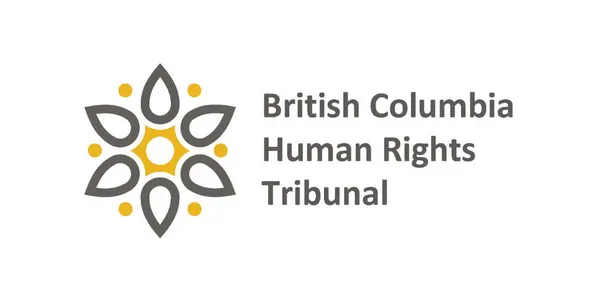
BC Human Rights Tribunal
Receives and resolves discrimination complaints under BC law.
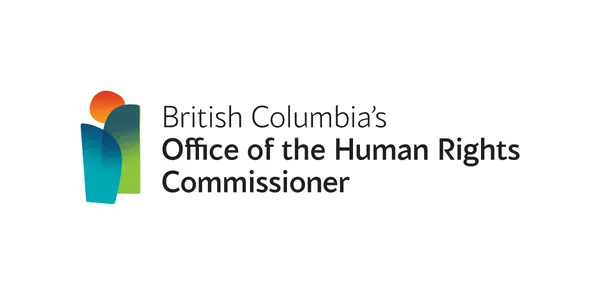
BC’s Office of the Human Rights Commissioner
Works on systemic human rights issues and educates people about human rights in BC.
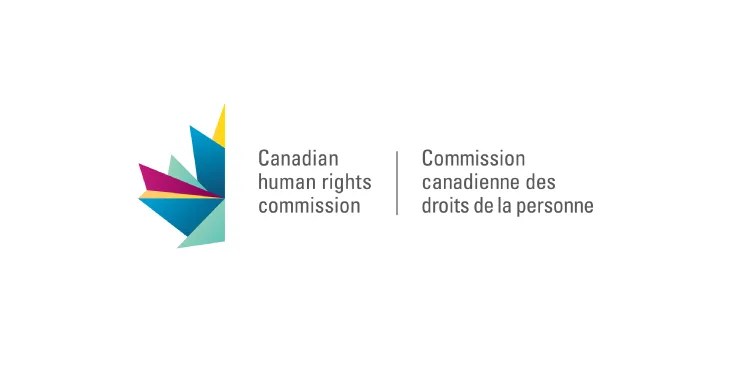
Canadian Human Rights Commission
Deals with discrimination complaints under federal human rights law.
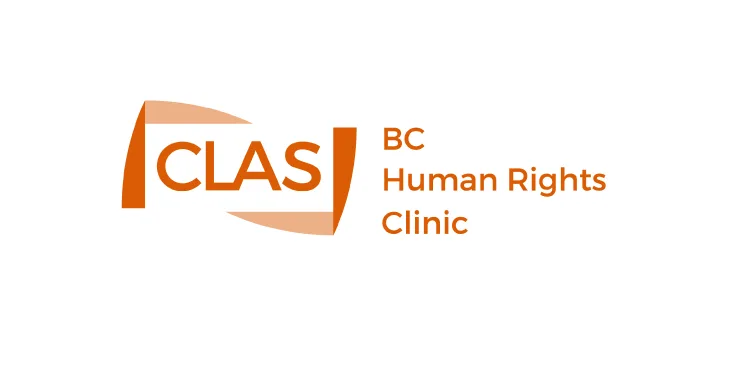
BC Human Rights Clinic
Provides free assistance and representation to those who qualify for help with a discrimination complaint under BC law.
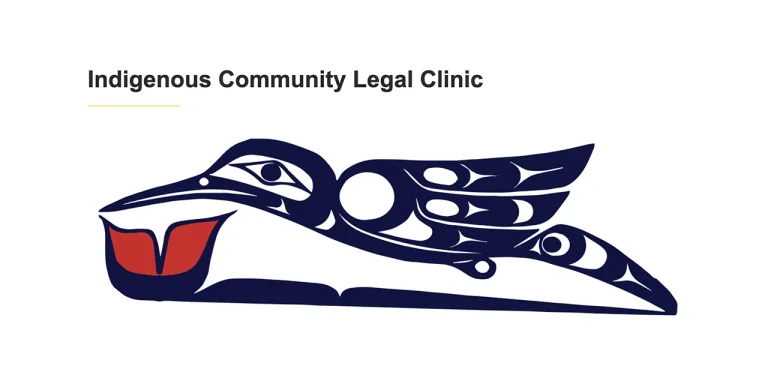
Indigenous Community Legal Clinic
Provides free legal help to Indigenous communities in BC.

Access Pro Bono's Free Legal Advice
Volunteer lawyers provide 30 minutes of free legal advice to people with low or modest income.
Reviewed for cultural sensitivity by
Kinwa Bluesky, Indigenous legal advocate


